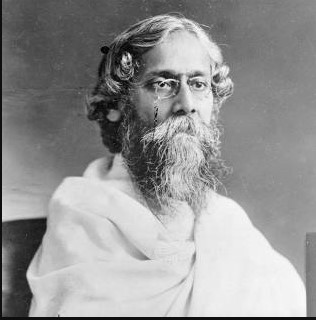
- Rabindranath Tagore was a renowned poet, philosopher, musician, and artist from India.
- He was born on May 7, 1861, in Calcutta, British India (now Kolkata, India), and died on August 7, 1941.
- Tagore was the youngest of fourteen children and came from a distinguished Bengali Brahmin family.
- He began writing poetry at a young age and published his first collection of poems, "Kabi Kahini" (The Poet's Tale), at the age of sixteen.
- Tagore's most famous work is the collection of poems titled "Gitanjali" (Song Offerings), for which he was awarded the Nobel Prize in Literature in 1913. He was the first non-European to receive this honor.
- Apart from poetry, Tagore also wrote novels, short stories, plays, and essays.
- He was a key figure in the Bengal Renaissance, a cultural and intellectual movement in Bengal during the late 19th and early 20th centuries.
- Tagore was a strong advocate for Indian independence and spoke out against British colonial rule. He used his writings and speeches to promote nationalism and social reform.
- He established the school Santiniketan, which later became Visva-Bharati University, in 1901. It emphasized a holistic approach to education, combining academics with art, music, and nature.
- Tagore was not only a poet but also a composer and musician. He composed over 2,000 songs, which are known as Rabindra Sangeet. Many of his songs are considered an integral part of Bengali culture.
- His works often explored themes of love, nature, spirituality, and the human condition. He had a deep connection with nature and frequently incorporated its imagery into his writings.
- Tagore's impact extended beyond literature and art. He was a social reformer and philanthropist, working to improve education, women's rights, and rural development in India.
- He was a highly influential figure in both India and the international literary community. His works have been translated into numerous languages and continue to be celebrated worldwide.
- Tagore's contributions earned him the title "Bard of Bengal" and a revered place in Indian and global literature. His legacy endures as his works continue to inspire and resonate with readers across generations.










